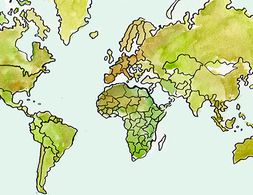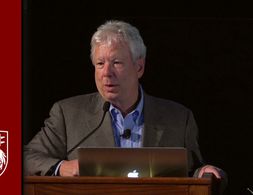✕
107 results
This article outlines the fundamental challenges of democratically planned economies and categorises proposed models into six groups, each of which approaches planning and coordination at different levels of authority and between myriad economic units in a particular way, taking into account efficiency as well as democratic principles and environmental and social sustainability. Through a classification system based on decision-making authority and mediation mechanisms, the article provides a framework for understanding and comparing these models. By examining their different approaches, it offers insights into the complexities and potential paths of democratically planned economies in the 21st century.
Framing borders as an instrument of capital accumulation imperial domination and labor control Walia argues that what is often described as a migrant crisis in Western nations is the outcome for the actual crisis of capitalism conquest and climate change This book shows the displacement of workers in the global …
In this essay, the principle of capital accumulation, as well as the idea of homo economicus as the basis of the growth model, are located and analyzed from a feminist perspective. The sufficiency approach is presented as an alternative to these two economic logics.
MERCOSUR (Mercado Común del Sur or Common Southern Market) was the first formalized attempt to integrate South American countries economically and politically.
The Great Recession 2.0 is unfolding before our very eyes. It is still in its early phase. But dynamics have been set in motion that are not easily stopped, or even slowed. If the virus effect were resolved by early summer—as some politicians wishfully believe—the economic dynamics set in motion would still continue. The US and global economies have been seriously ‘wounded’ and will not recover easily or soon. Those who believe it will be a ‘V-shape’ recovery are deluding themselves. Economists among them should know better but are among the most confused. They only need to look at historical parallels to convince themselves otherwise.
Firms are the primary places where economic activity takes place in modern capitalist economies: they are where most stuff is produced; where many of us spend 40 hours a week; and where big decisions are made about how to allocate resources. Establishing how they work is hugely important because it helps us to understand patterns of production and consumption, including how firms will react to changes in economic conditions and policy. And a well-established literature – led by post-Keynesians and institutionalists – holds that the best way to determine how firms work is to…wait for it...ask firms how they work. This a clearly sensible proposition that is contested in economics for some reason, but we’ll ignore the controversy here and just explore the theory that springs from this approach.
In the history of the social sciences, few individuals have exerted as much influence as has Jeremy Bentham. His attempt to become “the Newton of morals” has left a marked impression upon the methodology and form of analysis that social sciences like economics and political science have chosen as modus operandi.
Exploring Economics, an open-access e-learning platform, giving you the opportunity to discover & study a variety of economic theories, topics, and methods.
The podcast is an interview of Silvia Federici by David Denvir. It is centred around her book 'Caliban and the Witch - Women, the Body and Primitive Accumulation', but they also draw lines to contemporary issues and political struggles. Federici analyses the emergence of capitalism through a radical Feminist-Marxist lens.
Capitalism is dissolving boundaries - not only in the sense of ever-expanding global trade flows, but also in the concrete everyday working lives of individuals. What implications does this have for our understanding of freedom, work and borders?
Marxian Political Economy focuses on the exploitation of labour by capital. The economy is not conceived as consisting of neutral transactions for exchange and cooperation, but instead as having developed historically out of asymmetric distributions of power, ideology and social conflicts.
Institutional economics focuses on the role of social institutions in terms of laws or contracts, but also those of social norms and patterns of human behaviour that are connected to the social organisation of production, distribution and consumption in the economy.
This chapter discusses the role of gender in economic relations, processes, and outcomes. Gender differences in economic outcomes such as labor force participation and wages have received growing attention from economists in the last several decades – a positive and much needed development in economic thinking.
This essay deals with the concepts of Sustainable Land Management (SLM) and Land Degradation Neutrality (LDN).
In this essay the author elaborates on the EU's perspective on the fast growing sector of the platform economy.
In this essay the authors take a look at how welfare could be provided in a degrowth society.
This article investigates the set up of the CFA franc zones, its ties to French neocolonialism and its ability to further breed dependency in the former colonies.
As opposed to the conventional over-simplified assumption of self-interested individuals, strong evidence points towards the presence of heterogeneous other-regarding preferences in agents. Incorporating social preferences – specifically, trust and reciprocity - and recognizing the non-constancy of these preferences across individuals can help models better represent the reality.
Modern Monetary Theory (MMT) is a school of monetary and macroeconomic thought that focuses on the analysis of the monetary and credit system, and in particular on the question of credit creation by the state.
It is perhaps fitting that the seriousness of the coronavirus threat hit most of the Western world around the Ides of March, the traditional day of reckoning of outstanding debts in Ancient Rome. After all, problems and imbalances have accumulated in the Western capitalist system over four decades, ostensibly since it took the neoliberal road out of the 1970s crisis and kept going along it, heedless of the crises and problems it led to.
Whether a black swan or a scapegoat, Covid-19 is an extraordinary event. Declared by the WHO as a pandemic, Covid-19 has given birth to the concept of the economic “sudden stop.” We need extraordinary measures to contain it.
With the onset of an economic crisis that has been universally acknowledged since the end of March, two main questions arise: To what extent is the corona pandemic the starting point (or even the cause) of this crisis? And secondly: can the aid programmes that have been adopted prevent a deep and prolonged recession?
Steve Keen analyses how mainstream economics fails when confronted with the covid-19-pandemic. Mainstream economics has propagated the dismantling of the state and the globalization of production - both of which make the crisis now so devastating. More fundamentally, mainstream economics deals with market systems, when what is needed to limit the virus’s spread is a command system.
Shadow banking became one of the main features of modern market based financial capitalism and financial globalisation. Daniel Gabor locates this development in a Super-Cycle framework and sketches out opportunities to launch a new cycle that is green and just through financial regulation and publicly organised sustainable finance.
From the two premises that (1) economies are complex systems and (2) the accumulation of knowledge about reality is desirable, I derive the conclusion that pluralism with regard to economic research programs is a more viable position to hold than monism. To substantiate this claim an epistemological framework of how scholars study their objects of inquiry and relate their models to reality is discussed. Furthermore, it is argued that given the current institutions of our scientific system, economics self-organizes towards a state of scientific unity. Since such a state is epistemologically inferior to a state of plurality, critical intervention is desirable.
Exploring Economics, an open-access e-learning platform, giving you the opportunity to discover & study a variety of economic theories, topics, and methods.
Stratification economics is defined as a systemic and empirically grounded approach to addressing intergroup inequality. Stratification economics integrates economics, sociology and social psychology to distinctively analyze inequality across groups that are socially differentiated, be it by race, ethnicity, gender, caste, sexuality, religion or any other social differentiation.
This essay analyses how the role of central banks changed since the global financial crisis, and how this directional change was accelerated by the outbreak of Covid-19.
This course is designed to provide students with an understanding of work-related gender issues and to enable students to analyze the issues using the tools of economics.
This syllabus provides an overview of the contents of the course "Understanding Economic Models" at the University of Helsinki.
One hundred years ago the idea of 'the economy' didn't exist. Now, improving the economy has come to be seen as perhaps the most important task facing modern societies. Politics and policymaking are conducted in the language of economics and economic logic shapes how political issues are thought about and addressed.
Richard Thaler gives a lecture in the 2018 Nora and Edward Ryerson Lecture at the University of Chicago. In the lecture he discusses his Nobel Prize winning research.
We use cookies on our website. Click on Accept to help us to make Exploring Economics constantly better!






























